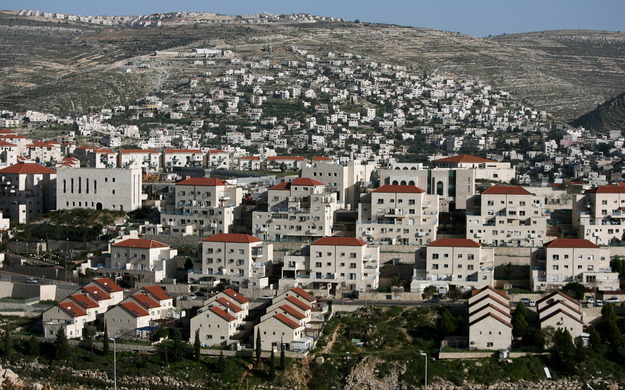IN THE MEDIA
Peace eludes Israel amid unrealistic expectations
April 22, 2014 | Colin Rubenstein

Colin Rubenstein
An edited version of this article was published in
Australian Financial Review – 22 Apr 2014
Tony Walker is certain Israel’s West Bank settlements are illegal. (Out on a limb over settlements, AFR 12-13 April). International law is far less certain. Many eminent experts have argued strongly that the claim they are illegal is based on an incorrect reading of Article 49 of the 4th Geneva Convention. These include Professor Julius Stone, who was professor of international law at Sydney University for 30 years, and former International Court of Justice president Stephen Schwebel.
The relevant clause, 49(6), written in the context of the Nazi forced deportations, states, “The occupying power shall not deport or transfer parts of its own civilian population into territories it occupies.” Israel has done no such thing. Settlers were not “forcibly” transferred or deported into the West Bank – as Article 49 implies and elsewhere specifies. They moved there voluntarily. Professor Stone referred to the anti-settlement interpretation as “an irony bordering on the absurd”.
Furthermore, the Conventions arguably don’t apply to the West Bank as they only apply to land taken by one country from another that legally occupies that land, and Jordan had no legal right to the West Bank.
Walker claims that settlements breach UN Security Council resolutions 242 and 338. The resolutions require the “Withdrawal of Israel armed forces from territories occupied in the recent conflict” in return for peace. Crucially, they do not require Israel to withdraw from “all the territories”, or even “the territories”. Lord Caradon, the British UN Ambassador who led the drafting of Resolution 242, has explained the resolution was deliberately drafted this way as it was accepted that the boundaries should be negotiated. Eugene Rostow, a former Dean of Law at Yale University, who, as then US Undersecretary of State for Political Affairs helped draft Resolution 242, has stated that the resolution gives Israel the legal right to be in the West Bank.
Perhaps more important than the legal questions is the issue of whether the settlements really are the impediment to peace that Walker, Carr and, of course, the Palestinians make out. It is almost widely accepted that any two-state resolution will involve Israeli retaining the part of the West Bank along the previous border, where 85% of the settlers live, and compensating the Palestinians with equivalent land from within Israel’s 1967 borders. Most new dwellings in the settlements are in these areas it is widely agreed Israel will keep in any conceivable outcome.
Since the 2004 Bush-Sharon agreement, Israel has only permitted building within the established boundaries of existing settlements, so they have not been expanding geographically, as is so often claimed, and the settlements only occupy less than 2 per cent of the entire West Bank. While there are settlements beyond the area that Israel is expected to retain, Israel has shown a repeated willingness to evacuate West Bank settlements in return for peace, just as Israel withdrew all settlers from Gaza and from four West Bank settlements in 2005. It is hard to see how Israelis building houses in settlements Israel will either keep or has been prepared to evacuate constitutes an obstacle to peace.
The reality is that the lack of peace has not been due to lack of trying on Israel’s part. Israel made generous peace offers under Ehud Barak in 2000 and 2001, but the Palestinian Authority under Yasser Arafat refused without a counter-offer, and in 2008 under Ehud Olmert, but the Palestinians, under Mahmoud Abbas, simply walked away. After Israel unilaterally withdrew from Gaza, Hamas took over, and Israel’s south has since suffered tens of thousands of rockets, and other terrorist attacks. Under the current Netanyahu government, Israeli confidence-building steps have included releasing from prison Palestinian terrorists who have killed Israelis, and virtually stopping building in settlements for ten months.
Real obstacles to peace include the continual incitement to hatred of Israel and glorification of terrorism that permeate Palestinian society including the media, schools and mosques, the PA’s refusal to accept Israel’s right to exist in peace as a Jewish state and its continuing insistence on flooding Israel with millions of descendants of refugees. They use the natural growth in settlements as a smokescreen to cover this recalcitrance. Those who focus on the settlements at the neglect of the real obstacles are actually pandering to the unrealistic Palestinian desire to achieve their aims without compromising, and are therefore being unhelpful to the cause of peace.
Walker calls on our government to take a principled position. I agree. The principled position our government has taken is that it is not constructive to declare the settlements illegal when they are one of the issues to be negotiated. The international community should take the same principled stand and should make it clear to the Palestinians that they have no alternative but to compromise and to negotiate in good faith in the interest of reaching an agreement that will finally end the conflict.
Colin Rubenstein is the Executive Director of the Australia/Israel & Jewish Affairs Council.
Tags: Israel





